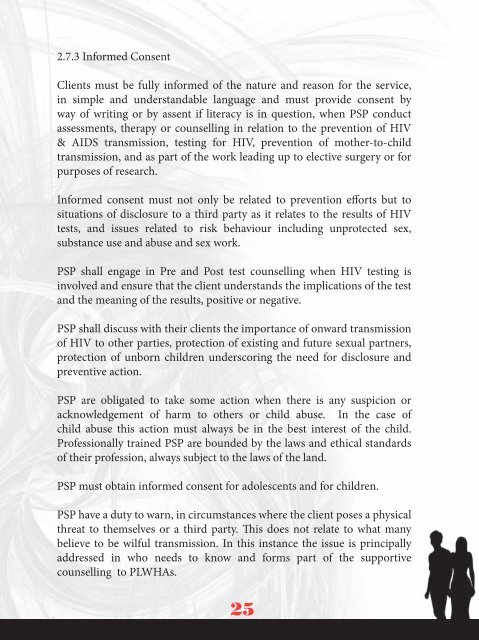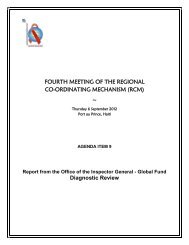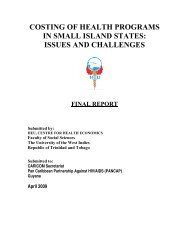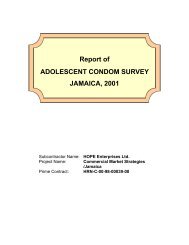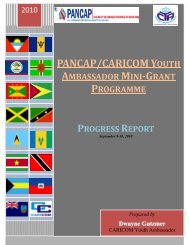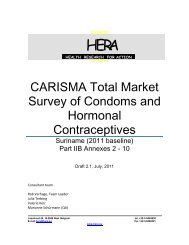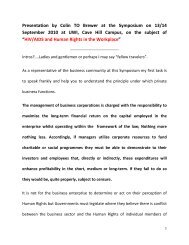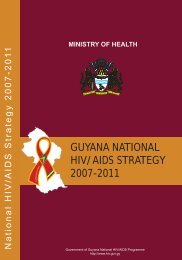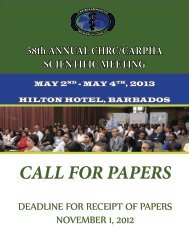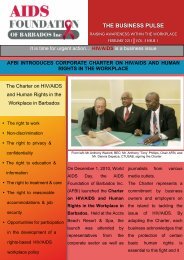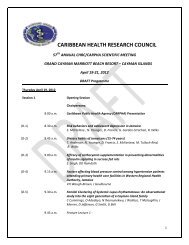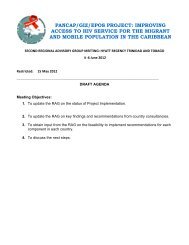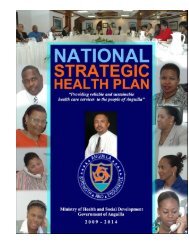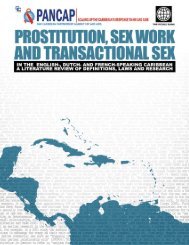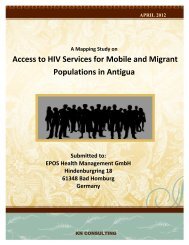Code of Practice for Psycho-Social Practitioners - PANCAP- Pan ...
Code of Practice for Psycho-Social Practitioners - PANCAP- Pan ...
Code of Practice for Psycho-Social Practitioners - PANCAP- Pan ...
You also want an ePaper? Increase the reach of your titles
YUMPU automatically turns print PDFs into web optimized ePapers that Google loves.
2.7.3 In<strong>for</strong>med Consent<br />
Clients must be fully in<strong>for</strong>med <strong>of</strong> the nature and reason <strong>for</strong> the service,<br />
in simple and understandable language and must provide consent by<br />
way <strong>of</strong> writing or by assent if literacy is in question, when PSP conduct<br />
assessments, therapy or counselling in relation to the prevention <strong>of</strong> HIV<br />
& AIDS transmission, testing <strong>for</strong> HIV, prevention <strong>of</strong> mother-to-child<br />
transmission, and as part <strong>of</strong> the work leading up to elective surgery or <strong>for</strong><br />
purposes <strong>of</strong> research.<br />
In<strong>for</strong>med consent must not only be related to prevention ef<strong>for</strong>ts but to<br />
situations <strong>of</strong> disclosure to a third party as it relates to the results <strong>of</strong> HIV<br />
tests, and issues related to risk behaviour including unprotected sex,<br />
substance use and abuse and sex work.<br />
PSP shall engage in Pre and Post test counselling when HIV testing is<br />
involved and ensure that the client understands the implications <strong>of</strong> the test<br />
and the meaning <strong>of</strong> the results, positive or negative.<br />
PSP shall discuss with their clients the importance <strong>of</strong> onward transmission<br />
<strong>of</strong> HIV to other parties, protection <strong>of</strong> existing and future sexual partners,<br />
protection <strong>of</strong> unborn children underscoring the need <strong>for</strong> disclosure and<br />
preventive action.<br />
PSP are obligated to take some action when there is any suspicion or<br />
acknowledgement <strong>of</strong> harm to others or child abuse. In the case <strong>of</strong><br />
child abuse this action must always be in the best interest <strong>of</strong> the child.<br />
Pr<strong>of</strong>essionally trained PSP are bounded by the laws and ethical standards<br />
<strong>of</strong> their pr<strong>of</strong>ession, always subject to the laws <strong>of</strong> the land.<br />
PSP must obtain in<strong>for</strong>med consent <strong>for</strong> adolescents and <strong>for</strong> children.<br />
PSP have a duty to warn, in circumstances where the client poses a physical<br />
threat to themselves or a third party. This does not relate to what many<br />
believe to be wilful transmission. In this instance the issue is principally<br />
addressed in who needs to know and <strong>for</strong>ms part <strong>of</strong> the supportive<br />
counselling to PLWHAs.<br />
25


